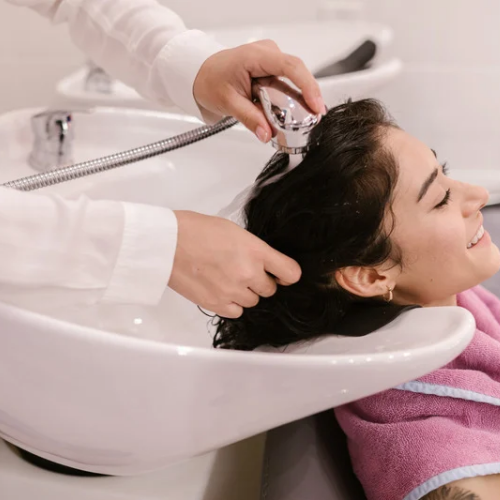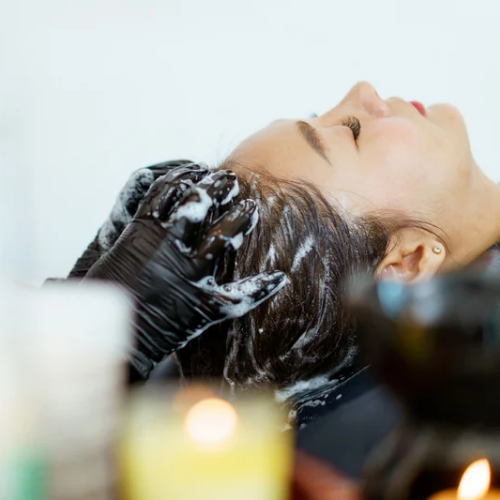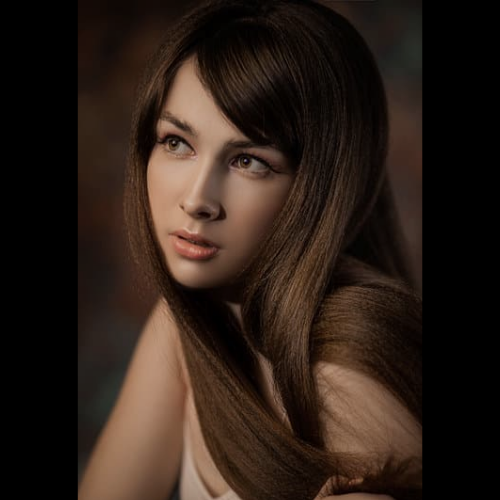Table of Contents
Silky hair is sometimes seen as the pinnacle of beauty and health, a desirable characteristic that many desire to possess. However, the road to silky hair is constantly strewn with myths and outmoded notions. In this comprehensive guide, we’ll look at the myths about silky hair, the truths that can help you get it, and practical care suggestions to keep your hair smooth, shining, and manageable.
Understanding Silken Hair
Silky hair is smooth, lustrous, and well-nourished. This texture is often distinguished by a healthy gloss & a delicate, flowing feel. Structure, moisture content, and overall health are all factors that contribute to hair’s silkiness. Genetics also play a major impact; some people are born with silkier hair due to the structure of their follicles and strands.

Understanding Hair Structure
Before we get into myths and maintenance advice, it’s tectonic to understand the fundamental structure of hair. Each strand of hair consists of three layers:
1. Cuticle: An outer layer composed of overlapping scales that protects the inner layers. A smooth cuticle produces lustrous, silky hair.
2. Cortex: The middle layer containing keratin, which gives hair its strength and color.
3. Medulla: The deepest layer, which may not be present in fine hair types.
Healthy hair begins with a well-maintained cuticle that lies flat, reflects light, and seems smooth.
Myths about Silky Hair
Myth 1: Only some hair types can be silky
Many people consider that only straight or wavy hair can have a smooth feel. With the proper care, every hair type, whether curly, coily, or straight, can become smooth. The idea is to keep moisture in and use suitable styling procedures.
Myth 2: Washing hair daily results in silky hair
While hygiene is crucial, washing your hair daily might deplete its natural oils, resulting in dryness and frizz. Most experts advocate washing your hair 2-3 times each week, depending on your hair type and lifestyle.
Myth 3: More products equals silkier hair
Overloading your hair with products can cause buildup, making it look dull and lifeless. The appropriate products in moderation can enhance the texture of your hair, but using too many can have the opposite impact.
Myth 4: Heat styling is essential for silky hair
While heat styling products can give hair a transient silky look, continuous use can harm it over term, causing dryness and breakage. It’s crucial to limit heat exposure & use protective products when styling.
Facts about Silky Hair
Fact 1: Moisture Is Key
Silky hair is usually well-hydrated. Water is essential for hair health because it promotes suppleness and prevents breakage. Hydrating shampoos, conditioners, and deep conditioning treatments should all be part of your routine.
Fact 2: Hair requires protein
Hair is composed of keratin, a protein that provides structure and strength. Protein treatments can help renovate damaged hair and make it silkier. Look for items that include components like keratin, silk proteins, or wheat protein.
Fact 3: Regular Trims are beneficial
Regular haircuts help remove split ends and escape further damage, allowing your hair to retain its silky appearance. Trim your hair every 6-8 weeks, depending on how healthy it is and how quickly it grows.
Fact 4: Scalp Health Counts
Healthy scalp is vital for glossy hair. Dandruff and excessive oiliness can both be detrimental to hair growth and quality. Regular scalp massages and the use of appropriate scalp treatments can help to improve healthy hair development.
Care Tips for Silky Hair
1. Select the Right Shampoo and Conditioner

Sulfate-free, hydrating shampoos and conditioners can greatly remediate the texture of your hair. Look for products containing natural oils and plant extracts, as these compounds help hydrate and nourish the hair.
2. Incorporate deep conditioning treatments

Deep conditioning treatments should be a component of your hair care regimen. Aim for a deep conditioning mask once every week. Coconut oil, argan oil, & shea butter are good moisturizers.
3. Limit heat exposure
If you use heat styling equipment, strive to reduce your usage. When possible, air-dry your hair, and always use a heat protectant spray to protect it from damage.
4. Be mindful of your diet

What you consume has a huge impact on the health of your hair. Make sure your diet has plenty of vitamins & minerals, specifically those that support hair health, like vitamins A, C, D, E, zinc, and omega-3 fatty acids. Salmon, almonds, seeds, and leafy greens are great options.
5. Use a silk or satin pillowcase

Switching to a silk or satin pillowcase will help decrease friction on your hair while you sleep, resulting in less breakage and smoother strands. This minor adjustment can make a major impact in retaining silky hair.
6. Avoid tight hairstyles
Tight hairstyles can result in stress and damage. Prefer looser styles and avoid rubber bands, which can snag & pull hair. Consider using cotton hair ties or scrunchies, which are softer on your hair.
7. Protect Your Hair From Environmental Factors
Sun exposure, chlorine, and pollution are among environmental variables that can cause harm to hair. When spending time outside, wear a cap and clean your hair after swimming to remove the chlorine.
Natural Treatments for Silky Hair
If you prefer natural alternatives, various home remedies can boost the silkiness of your hair.
1. Coconut oil
Coconut oil is known for its hydrating effects. Use heated coconut oil to your hair, let it sit for at least an hour, & then rinse it off. This treatment hydrates and nourishes your hair.
2. Aloe vera
Aloe vera is a great natural conditioner. Apply fresh aloe vera gel to your hair and scalp, let it sit for 30 minutes, and then rinse. It smoothes the hair and increases luster.
3. Honey and Olive Oil Mask
To make a nourishing hair mask, mix equal parts honey and olive oil. Apply it to your hair, leave it on for 30 minutes, and then wash out. This mask can aid to hydrate and shine.
4. Apple Cider Vinegar Rinse
Diluting apple cider vinegar with water and using it as a rinse after shampooing can aid to balance the pH of your scalp while also adding shine. Rinse well with water afterwards.
Lifestyle Factors That Influence Hair Health
Your lifestyle choices have a big impact on the health and appearance of your hair. Regards the elements listed below:
1. Stress Management
Chronic stress can cause hair loss and dullness. Incorporate stress-reducing activities into your daily routine, including yoga, meditation, or regular exercise.
2. Sleep Quality
Adequate sleep is critical to general health, including hair health. Aim for 7-9 hours of sleep per night to promote healthy hair development and upkeep.
3. Avoiding Harmful Chemicals
Limit your exposure to harsh chemicals present in certain hair products. Look for gentle, sulfate-free shampoos & conditioners, and minimize your usage of chemical treatments like colors or relaxers.
Frequently Ask Questions: Silky Hair: Myths, Facts, and Care Tips
1. What does it mean to have silky hair?
Silky hair is explained as smooth, lustrous, and healthy-looking hair that feels soft to the touch.
2. Is it necessary to use expensive products to get silky hair?
No, effective hair care is not price-dependent. Look for substances that are suitable for your hair type.
3. How frequently should I wash my hair for silkiness?
It depends on your hair type. In general, oily hair can be washed everyday, whereas dry or curly hair should be washed once or twice each week.
4. Does hair texture depend solely on genetics?
While genetics play an important role, food, care habits, & environmental variables all have a substantial impact on hair texture.
5. Can oils leave my hair greasy?
Using an appropriate amount of oil helps enhance shine and hydration. It’s about moderation.
6. How crucial is nutrition to hair health?
Very important. A well-balanced diet high in protein, vitamins, and healthy fats encourage lustrous, healthy hair.
7. What are some practical strategies for managing silky hair?
Use the correct shampoo & conditioner.
Use thorough conditioning treatments.
Avoid using too much heat when styling.
Protect your hair while sleeping.
8. Do natural therapies work for silky hair?
Yes, treatments like coconut oil, aloe vera, and honey masks can nourish and improve hair texture.
9. How does stress affect hair health?
Yes, persistent stress can lead hair loss and dullness, therefore reducing stress is beneficial to hair health.
10. How often should I have my hair trimmed?
Regular haircuts every 6-8 weeks assist to stop split ends and keep your hair looking healthy.
Conclusion
Achieving and maintaining silky hair is a journey that takes knowledge, care, and proper techniques. By refuting myths & sticking to the facts, you can design a personalized hair care routine that expose your hair’s natural beauty. Remember that silky hair is more than simply appearance; it is a reflection of total hair health. With patience & the appropriate attitude, you may get the smooth, lustrous locks you want. Accept your hair’s particular characteristics and invest in its health for long-term silkiness.
